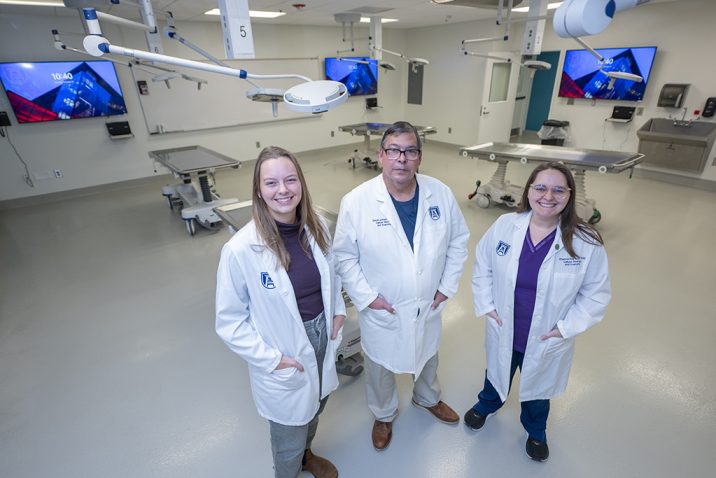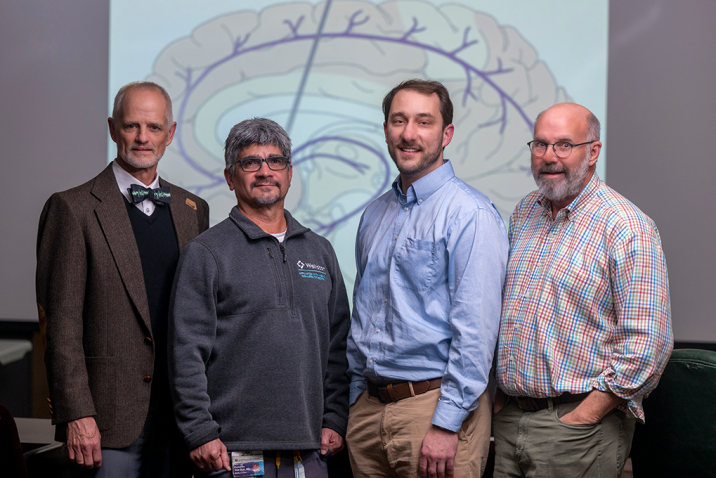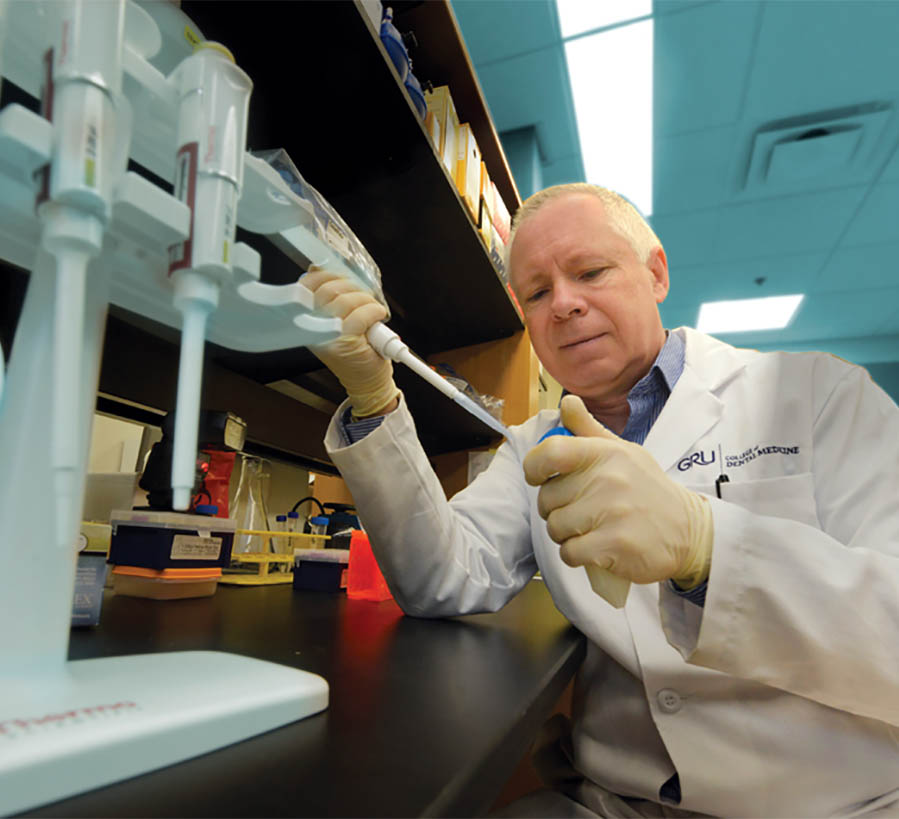Oral Biology and Maxillofacial Pathology
With a PhD in Oral Biology and Maxillofacial Pathology, you’ll learn molecular, cellular, bioengineering and in vivo research methodologies from The Dental College of Georgia’s award-winning faculty.
The program focuses on the biological processes that contribute to the normal development of the orofacial complex and the diseases that arise in this area.
By earning your doctorate in Oral Biology and Maxillofacial Pathology from The Dental College of Georgia at Augusta University, you’ll be engaged and inspired to make new scientific discoveries that improve clinical care.
Oral Biology and Maxillofacial Pathology is for you if you consider yourself
Life-Changing
Life-Saving
Education
Want to learn more about the Oral Biology and Maxillofacial Pathology program at Augusta University?
Request InfoWhat You'll Study
Coursework
Students in Augusta University’s Doctor of Philosophy Oral Biology and Maxillofacial Pathology program are admitted via a common admissions process to the Biomedical Sciences PhD programs. After completing the first-year core classwork and laboratory rotations, students choose a dissertation research mentor and enter the Oral Biology and Maxillofacial Pathology program.
The average time to completion of the degree is approximately five years of full-time, year-round study.
Curriculum | Admissions Criteria | Tuition and Fees | Application Deadlines



EXPLORE. EXCEL. EXPAND.
Graduate School Advantage
Augusta University's graduate programs are among the best in the nation – and the world – and our graduate students are our most valuable assets. To ensure that our students earn more than a degree, the Graduate School offers a range of opportunities so they can develop the leadership, communication and personal skills needed for a rewarding life and academic, research or professional career.
See what the Graduate School has to offer »
About the Graduate SchoolExperience-based Education
Outside the Classroom
The Dental College of Georgia works in collaboration with other units as well as other universities within the University System of Georgia to perform innovative, multidisciplinary research in dental and oral health related diseases.
Multidisciplinary Approach
The strong connection between biomedical science and clinical care is emphasized in every class.
Lasting Legacy
Established in 1969, DCG is the state’s only dental college, providing care to nearly 50,000 patients each year.
Broad Research
Faculty research interests include oral cancer, bone metabolism, tissue regeneration, diabetes and hypertension.
Recognized Faculty
Faculty serve in high-profile organizations, on editorial boards for major scientific journals and present groundbreaking research at national meetings.
Your Future
Career Options
With a doctorate in Oral Biology and Maxillofacial Pathology, graduates can explore a wide range of research topics in the biomedical sciences.
According to the U.S. Bureau of Labor Statistics, the median pay for a medical scientist is $100,890. The expected job outlook growth is much faster than average.
Profiles
Student Stories
I planned to pursue PhD in biomedical science to equip myself with knowledge and skills that would enhance my academic career and broaden my professional life. The collaboration between biomedical sciences and the dental sector helps me be part of translational research and contribute to the field of medicine.
Bidhan Bhandari
I am a dentist from India and I believe that a treatment becomes useful and valuable if it is based on the best evidence and coupled with the right equipment, methods, and technology. Pursuing biomedical research has equipped me with the tools to enhance my skills and broaden my knowledge in the field.
Harshit Singhania
Admissions Criteria at a Glance
GPA: Overall GPA of 3.0 on a 4.0 scale at the Baccalaureate level calculated on all undergraduate work.
Degree Requirement: Minimum of a Bachelor’s degree or equivalent from an accredited college or university.
Transcripts: Official transcripts are required from all universities and colleges ever attended. Unofficial transcripts from US colleges and universities can be used in the admissions review process in lieu of official transcripts for this program.
Standardized Test Requirements: None are required for this program.
Letters of Recommendation: Recommendations from three individuals must be submitted through the application portal.
Resume: Applicants must submit a resume or curriculum vitae within the application portal.
Research Experience: Research experience is required for admission. Applicants will provide a personal statement that includes a summary and description of your research experience in the application portal.
International Students: Please review the verification process for international transcripts and the english proficiency requirement.
Tuition & Fees Estimate
$4,801*
Estimated total
Full-time / In-State / Per Semester
$401
Tuition Per Hour
$675
Mandatory Fees
View Detailed Program Tuition
*Tuition & Fees listed here are for in-state students enrolling in the university for Fall 2025 semester.
Detailed Program Tuition InformationApplication Deadlines
Fall '26 International Deadline**
- December 1, 2025
Fall '26 Deadline
- December 1, 2025 - extended to December 15, 2025
Early submission of all application materials is strongly advised.
All required application materials and documents must be received in order for an application to be considered complete and before an admission decision can be made. The program does not accept applications after the published application deadline, however the program will continue to accept application materials up to 2 weeks after the application deadline.

Why Augusta?
As Georgia’s only dental college, an oral biology degree from The Dental College of Georgia gets noticed.
Interdisciplinary research opportunities expose you to the latest advances in biomedical science and clinical care.
A state-of-the-art facility located on Augusta University’s Health Sciences Campus puts you at the heart of the university’s research enterprise.

Families leave lasting contribution to medical science with body donations
Families leave lasting contribution to medical science with body donations
MCG starts human trials on deep brain stimulation for Alzheimer’s patients
MCG starts human trials on deep brain stimulation for Alzheimer’s patients

